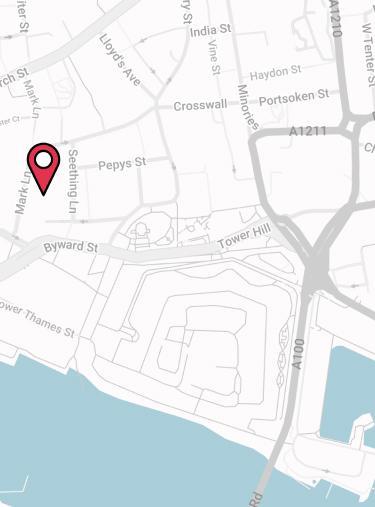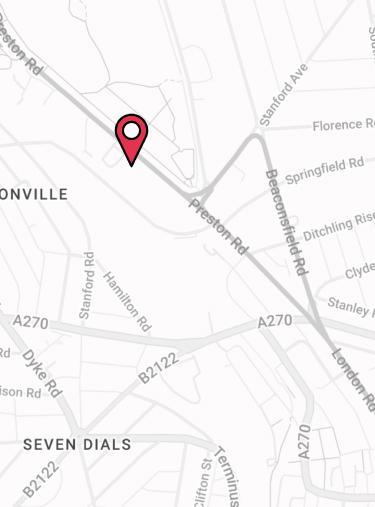Own or Rent? Either Way, Your Home Depends on Your Income
For many people, buying their first home is a major milestone, one that often prompts another responsible step: taking out protection insurance. But what about renters?
With 1 in 5 (5.6 million) UK adults privately renting many could be leaving themselves dangerously exposed if their income were to stop. The latest data from the Drewberry Individual Protection Survey 2025 reveals just how close most people are to financial hardship, whether they rent or own.
Why Protecting Your Income Is a Must
Life has an unpredictable nature. A sudden accident or injury could prevent you from working, sometimes for weeks, months and even years. As a result, your income could come to a stop – but the bills don’t. Rent or mortgage payments, utilities and everyday living costs keep coming, quickly turning a health setback into a financial crisis.
Are You Financially Prepared?
Our survey found 1 in 6 adults would run out of money within a month if their household’s main income stopped and 1 in 20 could only last a week or less. A further 10% aren’t sure how long they could cope.
These figures highlight just how many households are living without much of a buffer if their income were to suddenly disappear. But the numbers only tell part of the story. To truly understand who’s at risk, and why so few people are taking steps to protect themselves, we need to look at what prompts people to get covered in the first place – and where the current system leaves gaps.
The Problem With Mortgage-Driven Protection
Here’s the real issue: when we asked people why they took out protection insurance, the #1 reason was getting a mortgage. It’s a natural “nudge” moment: lenders want reassurance the loan will be repaid even if something happens, so protection becomes part of the conversation.
However fewer than half of the people we surveyed (47%) actually have a mortgage.
This raises the question: what’s everyone else doing? With 5.6 million privately rented homes in the UK, renters make up a big part of the picture, yet they’re rarely prompted to think about protection in the same way homeowners are.
When we focus only on mortgages, we risk forgetting the millions who still depend on their income to keep a roof over their heads. Whether you rent, own, or share your home, the bills don’t stop just because your paycheque does. Yet only 9% of UK adults have Income Protection Insurance, meaning most people would have no financial safety net if their income suddenly disappeared.
Why Your Safety Net Might Not Be Enough
Many people believe they could rely on savings or employer sick pay if they were out of work for several months. But the reality is stark. When asked “How would you survive financially if you were out of work for 6 months?”, the top two answers were savings or employer sick pay.
- Savings (66%)
- Employer sick pay (41%)
- A partner’s income (36%).
But savings can quickly run dry (especially with high living costs), and employer sick pay is rarely as generous as people think.
Nearly a quarter (24%) of respondents didn’t actually know what their sick pay entitlement was, and once any contractual pay ends, most employees fall back on Statutory Sick Pay of just £118.75 per week. That’s far from enough to cover rent or mortgage payments, let alone household bills.
Why Aren’t More of Us Protecting Our Income?
Despite the clear advantages of having Income Protection, it isn’t on the radar for the majority of people. Our survey data points to a few different reasons for this.
Mortgages Prompt Action, But Renting Doesn’t
Buying a home is often the first time in life when people sit down and consider what would happen if they were ill or passed away. Our 2025 survey confirms that getting a mortgage is the #1 life event that triggers people to take out protection insurance, such as Life Insurance, Income Protection and Critical Illness Cover.
And it makes sense. Mortgage debt is long-term and significant. Lenders want reassurance that their loan will be repaid even if something unexpected happens. But many renters face similar, if not greater, financial pressures compared to homeowners, and they aren’t experiencing the same cues to seek protection.

Renters don’t have that natural “nudge” moment like a mortgage application, where protection is part of the conversation. That means they’re far less likely to speak to an adviser – and more likely to miss out on valuable cover.
Samantha Haffenden-Angear
Independent Protection Specialist
People Don’t Know it Exists
Income Protection is often misunderstood or completely unknown, as many of our survey respondents had no idea it was even an option. In fact, it was the second most-common reason for not having Income Protection.
For those that are aware of it, affordability was the most common reason given for not having cover, yet the data shows most people have no idea how much a policy would actually cost.
They Think It Costs Too Much
When asked how much they thought a £1,500/month Income Protection policy would cost for a healthy 35-year-old non-smoker, the average guess was a monthly price of £58.43. In reality, this could be closer to £35.81(depending on individual circumstances), an overestimation of 63%!
Policies can often be tailored to fit a range of budgets, allowing you to tweak things such as deferred period, term length, and payout amount to keep premiums affordable.

Even if you’re on a budget, there are ways to adjust your policy to reflect what you can afford. The “best” price for you is unique, so we always recommend speaking to a financial adviser who can help you to compare quotes.
Give us a call on 02084327333 or email help@drewberry.co.uk to chat through your options.
Darren Jaynes
Independent Protection Specialist
There’s Too Much Faith in Company Sick Pay
41% of survey respondents said they’d rely on employer sick pay if they were off work for six months or more…
…But 24% don’t know what that entitlement actually is.
After any contractual sick pay runs out, typically within weeks, many employees will fall back on Statutory Sick Pay at £118.75 a week. Which is far from sufficient to cover average household costs.
Lack of Advice
Another reason people aren’t protecting their income is the lack of professional advice. Only 16% of people say they would seek financial advice when buying insurance, so renters who might purchase via price comparison sites or skip it altogether, rarely get the tailored guidance that homeowners might receive during mortgage applications.
When you buy insurance through an independent adviser, the responsibility lies with them to make sure the policy is fit for purpose, it’s an FCA-protected sale that offers peace of mind.

Income Protection offers something truly valuable: peace of mind. Given the complexities of finding the right cover, we recommend speaking to our team of advisers. Our advice is completely free, and you won’t pay us a penny for setting up your policy.
Call us on 02084327333 or email help@drewberry.co.uk to chat through your options.
Samantha Haffenden-Angear
Independent Protection Adviser
The Benefits of Having Income Protection
While concerns about cost, complexity and where to get advice keep many people on the sidelines, the reality is that Income Protection can be both straightforward and surprisingly affordable. Here’s what it actually offers when life throws a curveball:
- Financial stability
Covers a significant portion of your income, helping you keep up with bills like rent, mortgage, and utilities if you’re unable to work - Peace of mind
Lets you focus on recovery without worrying about money or mounting debts - Flexibility
Policies can be tailored to suit your budget and individual needs - Affordability
Often costs less than people expect, making it accessible for most working adults - Lifestyle protection
Helps you and your family maintain your standard of living, no matter what life throws your way.

Waiting until something goes wrong to think about protection insurance is like buying car insurance after a crash. If you rely on your income to live (and who doesn’t) then protection should be a priority, no matter your housing status.
Danny Gill
Independent Protection Specialist
Income Protection for All – Not Just Homeowners
This divide is creating a “protection gap” where renters (who may be more financially stretched), are the least likely to have cover, but the most likely to suffer if their income stops. Regardless of your housing situation, if you rely on your income, you need to protect it.
We help people from all walks of life, renters, homeowners, self-employed individuals, and employees, understand their risks and build tailored protection that works with their budget.
Because whether you’re renting a house or paying down a mortgage, your home is only secure if your income is. Give us a call on 02084327333 or email help@drewberry.co.uk for a free, no-obligation chat with one of our friendly advisers.
Other Top Stories From the Report
- Only 1 in 11 Brits Have Income Protection: Why We’re Failing to Protect Our Most Important Asset
- Protection Insurance in 2025: It’s Not As Expensive As You Think
- The One Life Insurance Mistake That Could Cost Your Family Thousands
Why Speak to Us?
When it comes to protecting yourself and your finances, you deserve first-class service. Here’s why you should talk to us:
- There’s no fee for our service
- We’re an award-winning independent insurance broker, working with the leading UK insurers
- You’ll speak to a dedicated specialist from start to finish
- 4100 and growing independent client reviews rating us at 4.92 / 5
- Claims support when you need it most
- We’re authorised and regulated by the Financial Conduct Authority. Find us on the financial services register.
- Topics
- Income Protection
Contact Us
125-135 Preston Road
Brighton
BN1 6AF
Cookies
Drewberry™ uses cookies to offer you the best experience online. By continuing to use our website you agree to the use of cookies including for ad personalization.
If you would like to know more about cookies and how to manage them please view our privacy & cookie policy.









